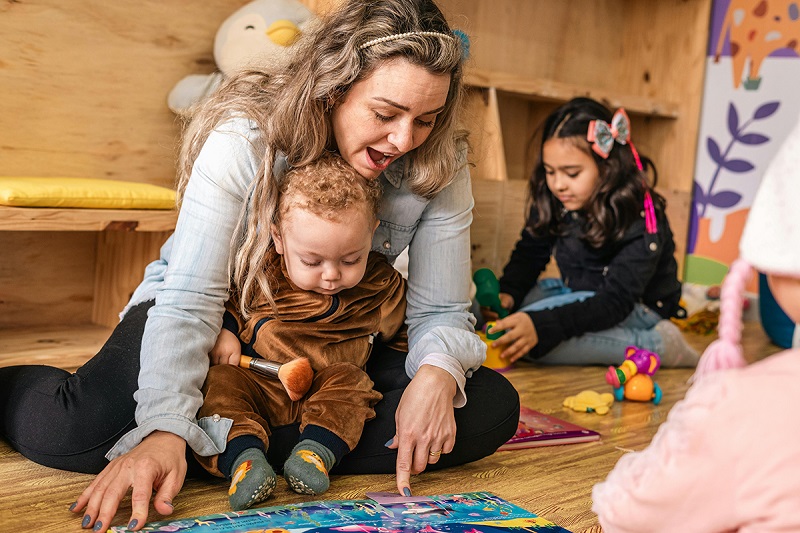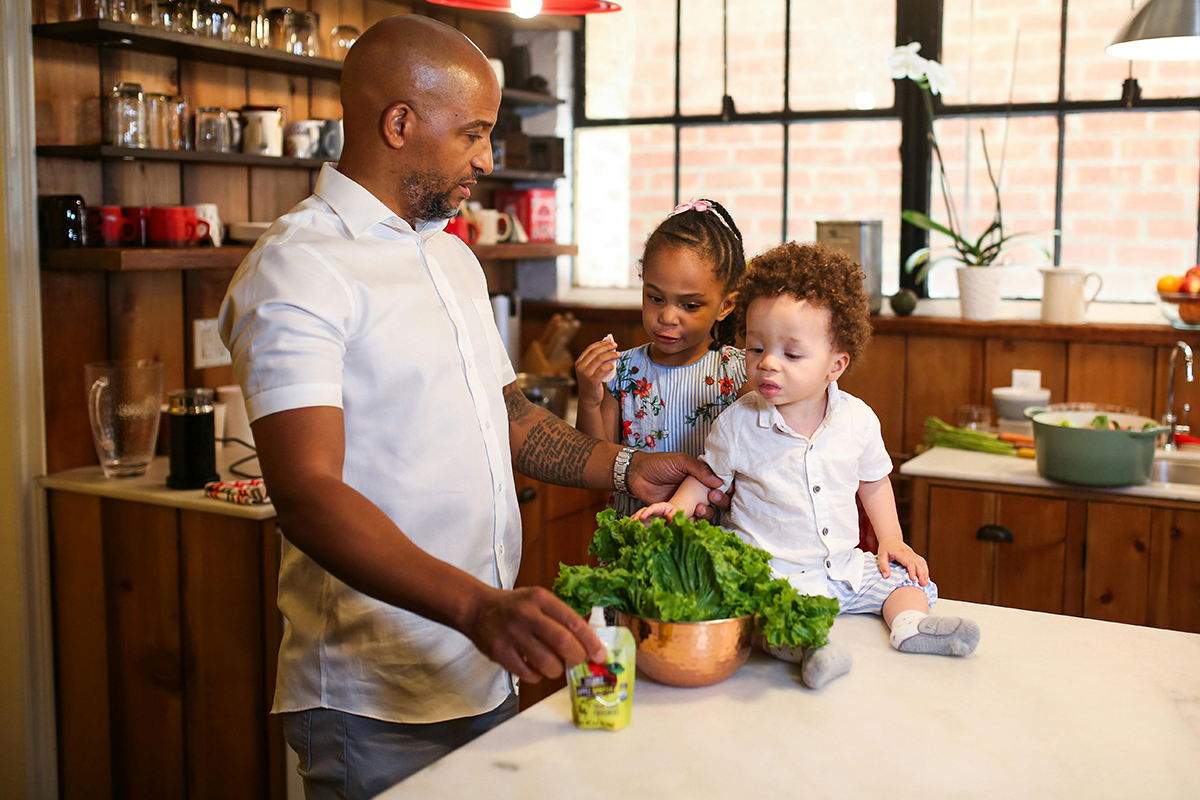Recently, a new parenting fear popped up in social media: rushing your kids. It turns out (so it is claimed) that rushing your kids leads them to develop anxiety. All those times you were hurrying your kids out the door, asking them why on earth they didn’t bring their socks down like you asked — you were creating anxious, unhappy adults.
This has made it into my DMs, as well as into hilarious Instagram content (this one is the best). The question people ask: Is this real? Is rushing or hurrying my child going to cause them anxiety? If so, how on earth do I get them out the door in time?

The Origin: Hurried child syndrome
There is, in fact, something called “hurried child syndrome.” This paper has an overview. Here is the definition they give:
“A syndrome described as ‘hurried child syndrome’ — a combination of stress-related behaviors — may develop when a child’s parents expect performance levels much above his or her mental, social, or emotional capacity. In essence, parents overbook their children’s calendars, put pressure on them to succeed academically, and expect them to act and react like young adults.”
This idea is codified (or possibly originated) in a book, first published in 1981, by a psychologist named David Elkind. The book, called The Hurried Child, is a classic in parenting literature. It sold over half a million copies, and a 25-year celebratory edition was published in 2006. The primary theme of the book is that kids are being asked to grow up too quickly — too many extracurriculars, too much focus on achievement, too much of treating kids like adults — and we should return to more of a play-based childhood.
Reading this book was an interesting experience, which I would cautiously recommend. Parts of it feel dated, even in the updated version. Obviously, there is no discussion of phones or tablets, and he seems overly concerned with the plight of children who have to fly as unaccompanied minors between their divorced parents. However, in large part, the book feels prescient. Elkind is making many of the same points that Jon Haidt or Jennifer Wallace have made in their recent books, but 43 years earlier. It’s a cry for a more play-based childhood and for letting kids be kids with lower pressure for longer.
The hurrying in the title here refers to hurrying kids to grow up, to develop adult responsibilities. There are related academic papers and books talking about individual parts of this, of the possible impacts of pressuring kids to achieve on their mental health.
There is an interesting debate to be had about many of the issues raised here. Indeed, I’ve recently made an entire podcast series — Raising Parents — that is largely tackling these big questions about how we parent now versus the past, and what we might change.
However — and I cannot emphasize this enough —this book has nothing to do with rushing your kids out the door. This is about a global, existential hurrying, not about trying to get to stuff on time. Telling your 4-year-old child to hurry up and clean up your toys so we can have a bath is not the same as telling a sixth grader that if they don’t make the travel soccer team they can forget about a college scholarship.
In fact, there is no evidence at all that this kind of day-to-day hurrying of kids has any particular negative effects. (I will say from experience it doesn’t seem to make them go any faster, either, but that’s more of an efficacy question.)
What’s really going on here?
The factual conclusion of this post could end with the above. We figured out the origin of this idea, and it’s clear it’s not relevant for behavior in the way people have taken it. From there, we could just move on and refocus on other Instagram-fueled anxieties.
But I think it’s worth just briefly reflecting on why this kind of over-simplification happens. After all, this isn’t the only example — far from it. Smart and thoughtful research on how to develop a growth mindset in children is translated to “never tell your child ‘good job.’ ” One study about how music improved test scores in college students resulted in parents everywhere piping Mozart into the womb. I could go on.
Why does this happen, and why do these messages find us?
Two reasons (I believe). The first is that we, as parents, are desperate for concrete guidance about how to do it right. By concrete, I mean finite and actionable. The guidance in this Hurried Child book is not that concrete. It’s more about developing a different lifestyle approach to how we parent. It is about changing the way society views children. It’s hard, and not something a single individual or family would be able to do totally on their own.
But… we want something we can do! There’s (commercial) value in translating this into something simple. Just play this Baby Mozart CD! Just stop telling your kid to rush! In some ways, this could help. Maybe I feel productive playing the Baby Mozart CD, and even if it doesn’t do anything, at least I get some Mozart. But it can also, paradoxically, make things worse. We tell people, Don’t rush your kid out the door, but that’s actually very hard to achieve! So now I’m definitely failing, and I feel even worse than when I might have been failing, but it’s hard to tell.
The second reason that these messages find us is that the modern social media landscape preys on parental fear. Nothing gets you more clicks than a panic headline. “Here’s one thing you’re doing every day that makes your kid more anxious” is going to get me every time, and it probably gets you too. And because it gets us all, we see more of it.
How can I react less to these panic headlines?
Here’s the reality: Even if you saw this thing about rushing kids leads to anxiety, and even if you spent time worrying about it, you probably didn’t actually change what you are doing in a long-term way. We’ve got enough going on that it is not feasible to continually alter our behavior in response to things like this. The problem with this type of news is that it makes us anxious and unhappy for some period, which makes our lives worse.
Conclusion: Our main defense is to not react to news like this. But how? One way: Remember that kids are resilient. Not infinitely, of course. Kids need things to thrive — a stable roof over their head, someone who loves them consistently, not being abused, having enough to eat — but they aren’t delicate orchids. Happy and productive adults have been raised with a lot of different parenting styles and approaches. It is just very, very implausible that many of these tiny changes would make very much difference in the long run.
Put another way: When you look out at the vast experience of people in the world, does it seem likely to you that rushing your child to put their shoes on is a guaranteed lifetime of anxiety? It doesn’t to me. And the data doesn’t say so, either.
The bottom line
- There is no evidence that rushing your child to do things in their daily life leads to anxiety.
- This over-simplification of “hurried child syndrome” is one of many examples of how easy it is to react to panic headlines. As parents, we’re naturally looking for an easy, actionable solution to our problems, and, unfortunately, that doesn’t always exist.






















Log in
Thank you for this! It stopped a 2am panic spiral.
I know this is completely missing the point of the post, but since you mentioned kids who don’t bring their socks down… We recently relocated all clean socks from the dresser to a tidy little container by the door. Makes getting out the door in the morning much easier!
Another way to respond to these panic inducing headlines on social media? Limit your own social media consumption. These companies profit off of getting clicks/likes and likes from your feelings of panic and upset. I deleted the instagram app 6 months ago after realizing how much I was scrolling through instagram postpartum (I can log in on the desktop version which is not as fun) and I will tell you, it is so much better on the other side. More time for reading, being more present with my child, less wasted time panicking or comparing or feeling like I “should be” doing what some influencer told me to do. 10/10 highly recommend limiting social media for your own happiness and learning to trust your own instincts as a parent!
Could not agree more – I deleted the app shortly after my daughter was born. She now 4 and I don’t miss it at all!